Variety and application of decorative nails
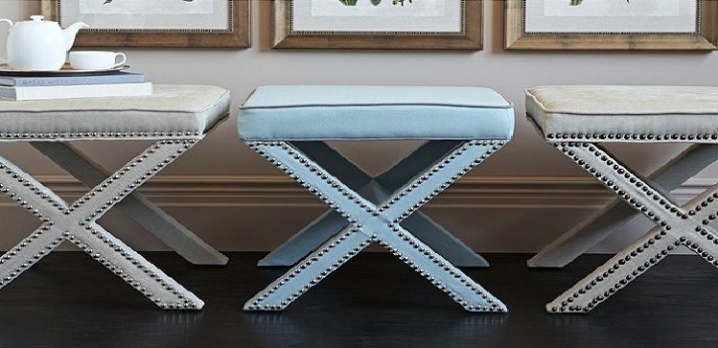
In the process of carrying out repair and construction tasks, exterior decoration is of great importance. Decorative nails are a necessary element for its implementation. In addition, such an element is of great importance for the restoration of furniture. Consider the features, rules of use and types of decorative nails.
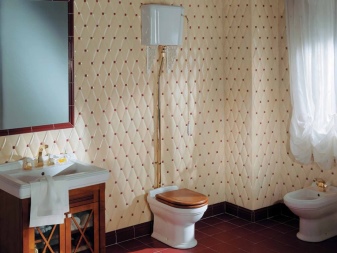
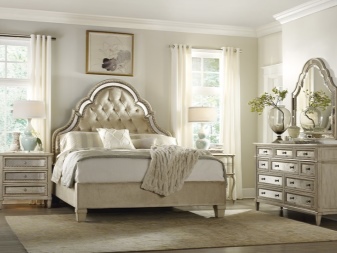
Peculiarities
Decorative nails Are products that are widely used in various spheres of human activity. That is why there is a huge variety of similar elements on the market today, which differ in one way or another (for example, length or appearance). Accordingly, each buyer will be able to choose just such a variety of decorative details that fully meets his needs and desires.
At their core, decorative nails are fasteners. Although they must primarily perform functional tasks, decorative items (as you might guess from their name) must have an aesthetically pleasing appearance that will fit well into one style or another.
It is also important that these decorative elements are made of durable and reliable materials.
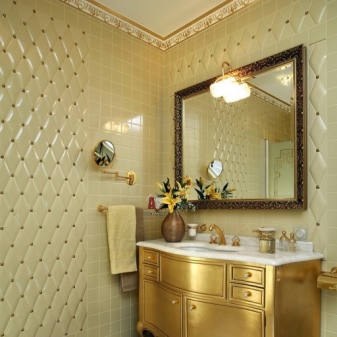
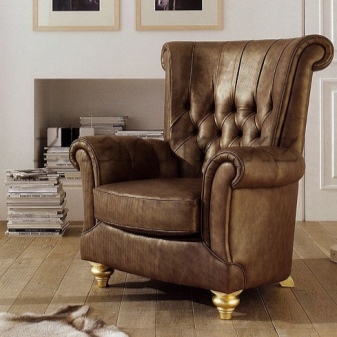
Species overview
Modern experts distinguish several types of decorative details. So, for example, you can find nails with and without a head, in a modern design and antique, long and short varieties, as well as other options. Consider several popular classifications of decorative nails.
By cap size products with a small head and elements with a large hat are distinguished. The first option resembles standard finishing nails. For the most part, this variety performs a functional role, carrying out a fixing action.
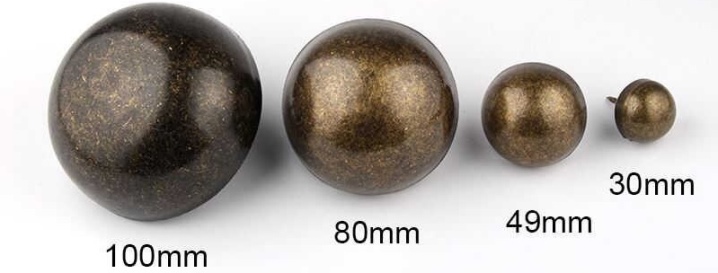
In this regard, if you prefer products with a small head, then choose them to match the main product.
Large head nails serve an aesthetic function, since the nail head is an integral part of the decor.
By design, decorative details can be decorative and wallpaper. The finishing variety is a thin nail (most often the raw material in this case is wire), the diameter of which does not exceed 2 mm, and the length is 4 cm. The hat of such an element is small. Decorative wallpaper nails have a large and beautiful head and are small in size (maximum diameter - 2 mm, maximum length - 2.5 cm).
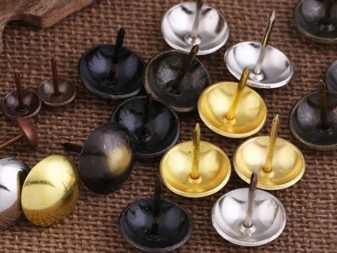
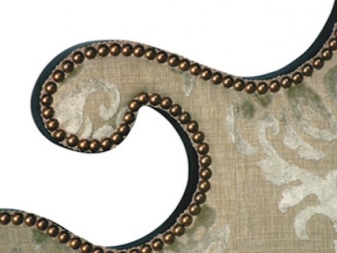
The most diverse classification of decorative nails is their distinction by their external design. So, depending on this characteristic, the following groups are distinguished:
- enameled - the hats of such products are painted with enamel and covered with a pattern (it can be either monochromatic or multi-colored);
- shaped - nails can have not only a traditional round head, but also a semicircular, square, triangular, volumetric;
- embossed - the heads of the nails can be smooth or embossed (voluminous);
- complex - the shape of hats can be not only geometric, but also have a complex shape: for example, a flower, letter, butterfly, hieroglyph.
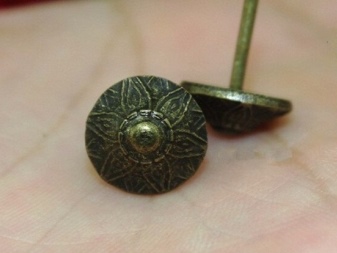
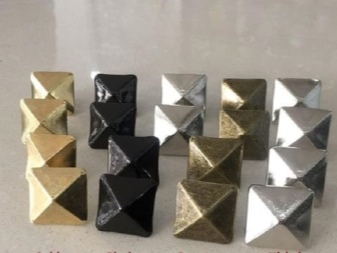
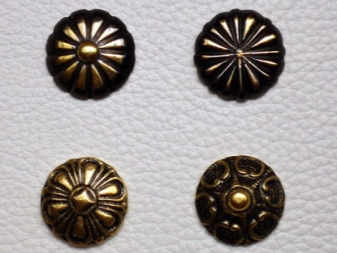
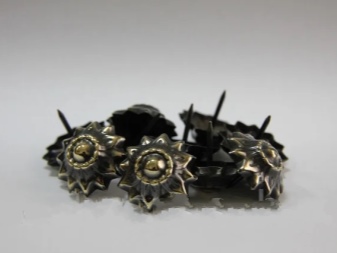
Materials (edit)
Depending on the material of manufacture, decorative nails can be:
- brass;
- forged;
- copper;
- steel;
- zinc;
- from nickel;
- silver;
- gold;
- from chrome;
- leather;
- fabric;
- plastic.
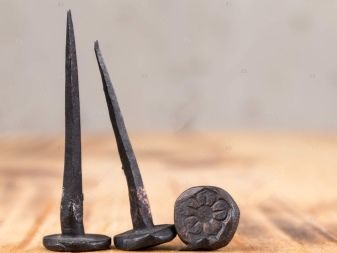
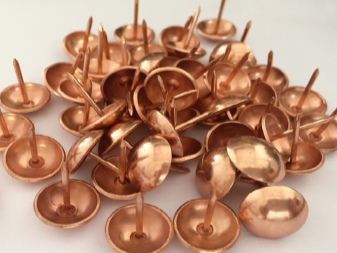
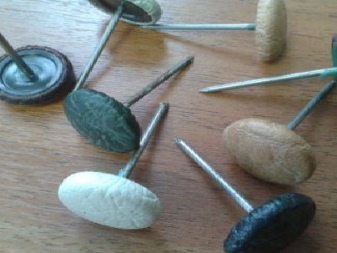
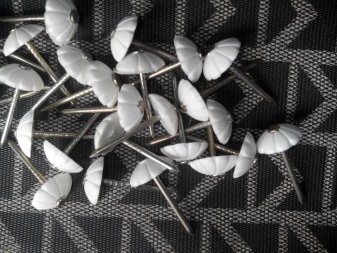
At the same time, the most common and most demanded material is brass... At the same time, when choosing the material of nails, it is very it is important to start not only from your personal preferences, reliability and appearance of the material, but also from what raw materials the main product is made from.
Be sure to take into account the fact that the materials should be well combined with each other: firstly, the nails should easily pierce the main product, and secondly, the materials should visually match.
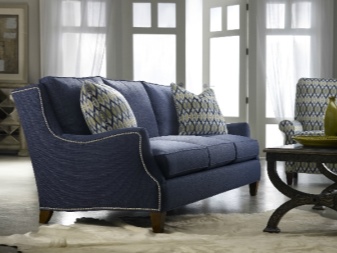
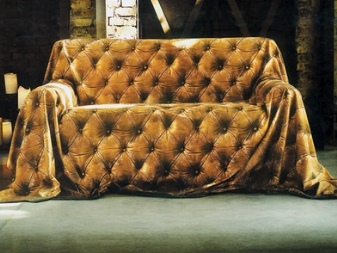
Usage
Decorative elements combine functional and aesthetic characteristics, therefore the area of their use is quite wide and varied... So, for example, elements are often used to decorate interior details that are made of soft material or wood (in this case, nails can be used alone or form an unusual pattern from them that will fit well into the overall style). Moreover, they can be fastened manually or using a special device called pneumatic stapler.
By using a simple and common decorative material like nails, you can give an unusual look to an outdated or boring product. Feel free to get creative and creative, but also keep practicality and functionality in mind.
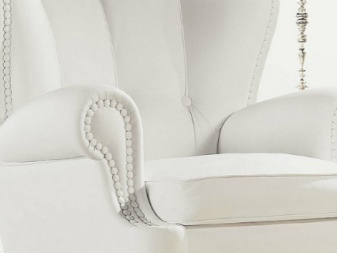
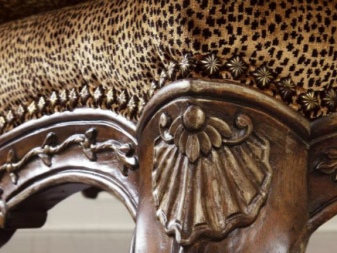
In the process of using fasteners, it is important to follow a few rules.
- Before using decorative pieces, it is important to make sure that the length of the fastener is 2 or 3 times the thickness of the material you are fastening. If you ignore this principle, then in the end your fasteners will be unreliable and will quickly weaken, which can lead to a complete breakdown of the product.
- If you use not one, but several nails for fastening, then think in advance about how you will place them. So, for example, you can give preference to a simple symmetrical arrangement, create a non-standard design, issue an author's pattern, make an ornament.
- To create a classic style, it is recommended to arrange the nails along the contour. At the same time, it is advisable to choose fasteners in an elegant traditional style so that they do not create a lurid effect.
- If you want to draw the attention of others to this fastener, then use nails whose color is contrasting with the color of the main product. Otherwise, choose nails that match.
- To add eclecticism to the product, you can use several types of nails at the same time: they may differ in material, size, and appearance.
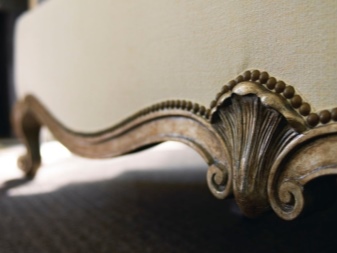
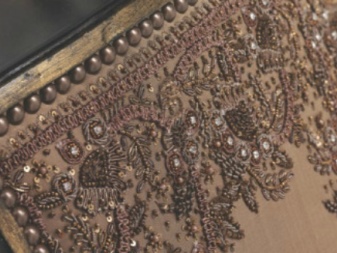
In the next video, you will learn how to drive a decorative nail evenly.













The comment was sent successfully.